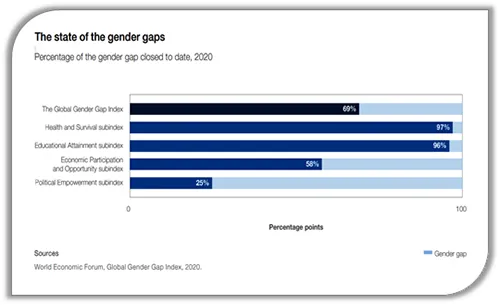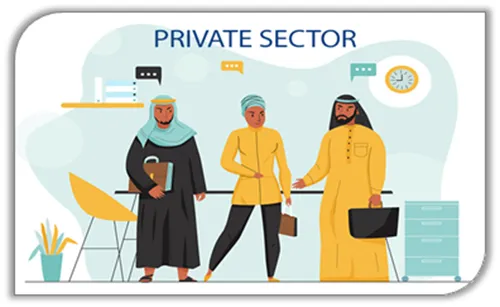
Menu

Menu

In the UAE, employees in the private sector can now enjoy five working days of parental leave. They can take this leave from the day of their child’s birth until the child is six months old. Moreover, this paid leave is available to both mothers and fathers, allowing them to bond with their newborns during this crucial time.
Approved by His Highness Sheikh Khalifa bin Zayed Al Nahyan in August 2020, this amendment to the Labor Law highlights the government’s commitment to promoting family values. By offering this benefit, the UAE aims to foster a supportive work-life balance, vital for the well-being of employees and their families.
Notably, the UAE is the first Arab country to grant parental leave to private sector employees. In contrast, countries such as Kuwait, Bahrain, Iraq, Jordan, Syria, and Qatar do not provide paternal leave. This significant decision enhances the UAE’s reputation as a progressive nation.
This initiative encourages other Arab nations to adopt more family-friendly policies. By leading the way in offering such benefits, the UAE sets a benchmark for the region. Consequently, the UAE stands out as the only Arab country to permit parental leave for private sector employees.
This distinction reflects the UAE’s forward-thinking approach to family policies. Ultimately, it promotes a shift toward supportive workplace environments that prioritize employee well-being and family cohesion. Thus, this initiative demonstrates the UAE’s commitment to enhancing the quality of life for its citizens and residents.
It is notable that ‘UAE is the first Arab country to permit the parental leave to the employees of private sector’

This amendment to the federal labor law highlights the government’s commitment to caring for employees’ children and supporting family needs. Moreover, the law aims to ensure secure and stable family cohesion for employees working in the UAE. As a result, it fosters a nurturing environment for both parents and children.
Additionally, this amendment represents a significant step toward balancing gender roles. By encouraging young minds to pursue careers in the private sector, it helps break down traditional barriers. Furthermore, this initiative enhances the UAE’s brand image in the international market. It showcases the country’s commitment to progressive policies that support families and promote gender equality.
Ultimately, these efforts reflect a broader vision of a thriving and inclusive society that values the well-being of its workforce.
The UAE government continuously initiates steps & measures through the Gender Balance Council established in 2015, ensuring that Emirati women continue to play a decision making role in the development of the UAE. As per the directive by the president UAE, His Highness Sheik Khalifa Zayed Al Nahyan, Emirati women tend to occupy 50% of the seats in Federal National Council (FNC).

According to the world economic forum’s global gender gap report 2020, UAE advanced to 10th rank for the sub-index of wage equality for similar work. Mona Al Marri, vice president of UAE Gender Balance Council said that UAE is studying the legal constitution of Scandinavian countries, who are considered as the global leaders for gender equality, to provide a standard guidelines while framing the local laws. Hence, this parental leave leaves us in no surprise to balance the gender in the working environment of the economy. It is a huge stride with the intention of retaining their female workers in the private sector.

The ‘Private Sector Youth Council,’ launched in 2018 by the Ministry of Human Resources and Emiratisation, is a vital initiative aimed at inspiring UAE youth to engage in the private sector. Specifically, it targets local, regional, and international arenas. This council not only creates opportunities but also fosters a platform for young talent to share ideas and innovate.
Furthermore, the recent amendment regarding parental leave highlights the government’s commitment to supporting this talent pool. By doing so, it provides a conducive environment that encourages young professionals to pursue careers in the private sector.
Through such policies, the UAE is nurturing its youth while cultivating a diverse and dynamic workforce. This workforce can contribute significantly to the nation’s economic growth and development. Ultimately, these initiatives reflect a strategic vision focused on empowering the next generation and ensuring their success in a competitive job market.

The Ministry of Human Resources and Emiratisation (MoHRE) implements numerous strategic plans aimed at transforming the UAE job market into an empowering and attractive environment for Emirati talent. In addition, these plans enhance job opportunities while fostering skills development, increasing workforce participation, and promoting inclusivity across various sectors. For instance, MoHRE has introduced various training programs designed to equip Emirati youth with essential skills that meet industry demands.
Moreover, the ministry emphasizes collaboration with private enterprises to create a robust ecosystem that supports the growth of local talent. By partnering with businesses, MoHRE ensures that job seekers receive the guidance and resources they need to navigate the job market effectively. This collaboration not only benefits employers by providing them with skilled candidates but also boosts the confidence of job seekers, knowing they have access to relevant opportunities.
Furthermore, by prioritizing initiatives that align with the needs of both the economy and its citizens, MoHRE is paving the way for a sustainable future. These initiatives, such as mentorship programs and job fairs, help bridge the gap between education and employment, ensuring that young talent can transition smoothly into the workforce.
To stay informed about the latest developments in the UAE job market, be sure to connect with our page. We regularly share updates, insights, and valuable resources to help both job seekers and employers navigate this evolving landscape successfully.
The introduction of parental leave in the UAE is set to have a profound impact on family dynamics, enabling parents to spend valuable time with their newborns. Specifically, by providing both mothers and fathers the opportunity to bond with their children during the critical early months, this leave fosters a nurturing environment that contributes to healthier family relationships. Moreover, research indicates that when parents are present during these formative weeks, it significantly enhances the emotional well-being of both the child and the parents.
In addition to this, this policy encourages shared parenting responsibilities, allowing both parents to play an active role in their child’s upbringing. Furthermore, by promoting shared duties, this initiative helps to alleviate the pressure often placed on mothers, fostering a more balanced distribution of parental responsibilities. Consequently, fathers can develop a deeper connection with their children, which benefits family dynamics in the long run.
As a result, this initiative not only enhances family cohesion but also promotes a culture of understanding and support within the workplace. By cultivating an environment where employees feel valued and respected, companies can expect increased loyalty and commitment from their workforce. Ultimately, this positive influence contributes to improved employee morale and productivity. In addition, satisfied employees are more likely to engage actively in their roles, leading to higher performance levels and greater organizational success.
In addition to fostering family dynamics, the parental leave policy significantly promotes employee well-being by acknowledging the importance of work-life balance. By offering paid leave, the UAE government demonstrates a commitment to the mental and emotional health of its workforce. In fact, studies have shown that employees who feel supported in their personal lives are often more engaged and productive in their professional roles. Moreover, this initiative reflects a broader understanding of the need for holistic well-being in the workplace, where employees are empowered to manage their responsibilities effectively.
Furthermore, parental leave can reduce the stress associated with balancing work and family obligations, enabling employees to focus more on their tasks upon returning to work. As a result, this support system not only enhances the overall quality of life for employees but also fosters loyalty towards their employers. Consequently, this focus on employee well-being contributes to a more positive work culture and reduces burnout, ultimately enhancing overall job satisfaction. Additionally, organizations that prioritize work-life balance often attract top talent, as prospective employees seek environments that support their personal and professional growth.
Ultimately, by investing in policies that recognize and address the diverse needs of their workforce, employers can cultivate a thriving, motivated team that drives organizational success.
The parental leave initiative aligns the UAE with global standards in employee rights, reflecting an awareness of international best practices. As many countries continue to advance their parental leave policies, the UAE’s efforts position it as a progressive leader in the Arab world. Furthermore, by adopting such measures, the UAE not only improves its local labor market but also enhances its global reputation as a favorable destination for expatriates and international businesses. This alignment with global standards demonstrates the UAE’s commitment to creating a competitive and attractive environment for talent across various sectors, fostering economic growth and innovation.
In addition, the initiative serves to attract a diverse workforce by appealing to the values and expectations of modern employees. As a result, organizations within the UAE can benefit from a wider talent pool, which can lead to increased creativity and a variety of perspectives. Moreover, such policies can enhance employee satisfaction, ultimately reducing turnover rates. In summary, this parental leave initiative not only reflects the UAE’s dedication to family welfare but also positions the nation as a forward-thinking leader that prioritizes the well-being of its workforce.
The implementation of parental leave is not just a policy for immediate benefit; it is a strategic move toward long-term economic growth. By retaining talent and supporting families, the UAE positions itself to build a strong and sustainable workforce. As more employees feel valued and supported, they are likely to remain in their positions. Moreover, they will contribute positively to their organizations. This initiative also encourages a diverse workforce that can adapt to changing economic needs.
In addition to improving employee retention, parental leave fosters a culture of loyalty and commitment within organizations. When employees perceive that their well-being is a priority, they are more motivated to excel in their roles. Furthermore, this policy can attract top talent, as potential candidates often seek employers that offer comprehensive benefits. This aspect is particularly crucial in a competitive job market.
Ultimately, investing in employee satisfaction and well-being serves as a catalyst for increased productivity, innovation, and economic stability in the UAE. By prioritizing family support, the UAE not only enhances the quality of life for its workforce but also ensures a robust economy. This economy is capable of thriving in the face of future challenges.
Looking ahead, the parental leave policy signals a positive shift in gender policies within the UAE. As the government continues to promote gender balance and equality, it is likely that more initiatives will be introduced to support both men and women in the workforce. For instance, potential future policies may include enhanced flexible working arrangements and expanded childcare support. These measures aim to create an even more conducive environment for all employees.
Moreover, this proactive approach not only enhances the role of women in professional settings but also encourages men to take on more responsibilities at home. This shift in mindset is crucial because it allows for shared family duties. Ultimately, this leads to healthier family dynamics. As a result, when both parents actively participate in childcare and household responsibilities, it sets a positive example for future generations. Thus, it fosters a culture of equality from an early age.
By fostering a culture of equality, the UAE can expect to see a more diverse and balanced workforce that benefits all sectors of the economy. This diversity enhances creativity and innovation within organizations. Additionally, it improves overall employee satisfaction and retention rates. Therefore, the future outlook for gender policies in the UAE appears promising, paving the way for a more inclusive and equitable society. In conclusion, as these policies evolve, they will contribute significantly to the nation’s social and economic fabric, creating a more harmonious and prosperous future for everyone.
Alignment
Article
Audit
Automation
Benefits
Candidate
Communication
Compliance
Digitalisation
Digital Technology
Diversity
Emirates Id Application
Employee Experience
ESS
Feedback
Health and Safety
HRMS
HR Strategy
HR System UAE
Human Resource Management
Human Resource Management Systems
Job Roles
Learning and Development
Onboarding
Outsource
Payroll
Payroll Management System
Payroll Processing
Performance
Performance Management
Personalisation
Recruit
Recruiting
Recruitment
Remote Working
Rewards
Security
Service Providers
Skills
Smart
Survey
Virtual
Visa Cancellation
Work Environment
Workforce
© 2026 Pruvity HR Solutions Pvt Ltd, Madurai, India